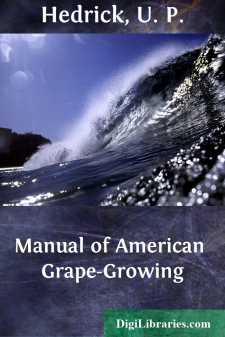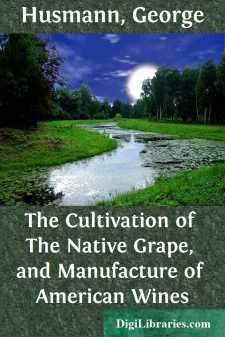Non-Classifiable
- Non-Classifiable 1768
Non-Classifiable Books
Sort by:
by:
Leon Benett
CHAPTER I.I.C.Cassini—Picard and La Hire—The arc of the Meridian and the Map of France—G. Delisle and D'Anville—The Shape of the Earth—Maupertuis in Lapland—Condamine at the Equator. Before we enter upon a recital of the great expeditions of the eighteenth century, we shall do well to chronicle the immense progress made during that period by the sciences. They rectified a crowd of...
more...
by:
Leon Benett
CHAPTER I.THE DAWN OF A CENTURY OF DISCOVERY.Slackness of discovery during the struggles of the Republic and Empire—Seetzen's voyages in Syria and Palestine—Hauran and the circumnavigation of the Dead Sea—Decapolis—Journey in Arabia—Burckhardt in Syria—Expeditions in Nubia upon the two branches of the Nile—Pilgrimage to Mecca and Medina—The English in India—Webb at the Source of...
more...
In preparing maps showing the geographic distribution of North American microtines, conflicting statements in the literature and identifications that, if accepted, would result in improbable geographic ranges have led to the examination of pertinent specimens with the results given below. The studies here reported upon were aided by a contract between the Office of Naval Research, Department of the...
more...
CHAPTER I Principles of Voice Culture. The first essential to one beginning the study of voice culture is an appreciation of the real significance of voice development. We must recognize at once the fact that the voice is a natural reporter of the conditions, emotions, thoughts, and purposes (character and states or conditions) of the individual. The ring of true culture in the voice is that perfect...
more...
THEORIES ON THE ORIGIN OF SPEECH The evolutionary theory is thus propounded by Romanes in his "Mental Evolution in Man," pp. 377-399: "Starting from the highly intelligent and social species of anthropoid ape as pictured by Darwin, we can imagine that this animal was accustomed to use its voice freely for the expression of the emotions, uttering danger signals, and singing. Possibly it may...
more...
by:
U. P. Hedrick
PREFACE Seventy-nine books on grapes enrich the pomology of North America, not counting numerous state and national publications. Pomological writers in America have been partial to the grape, for other fruits do not fare nearly so well. Twenty-two books are devoted to the strawberry, fourteen to the apple, to the peach nine, cranberry eight, plum five, pear nine, quince two, loganberry one, while the...
more...
PREFACE If the support of great and good men, famous throughout Christendom, will avail to justify a cause, then indeed we who would utterly abolish the torture of animals by vivisection can never be put out of countenance. Difficult would it be indeed to bring together the authority of so many resounding reputations against any other act of man, since slavery was abolished. The poets, philosophers,...
more...
by:
George Husmann
INTRODUCTION It is with a great deal of hesitation I undertake to write a book about Grapes, a subject which has been, and still is, elucidated every day; and about which we have already several works, which no doubt are more learned, more elaborate, than anything I may produce. But the subject is of such vast importance, and the area suitable for grape culture so large, the diversity of soil and...
more...
by:
George Berkeley
1. My design is to show the manner wherein we perceive by sight the distance, magnitude, and situation of OBJECTS. Also to consider the difference there is betwixt the IDEAS of sight and touch, and whether there be any IDEA common to both senses. 2. It is, I think, agreed by all that DISTANCE, of itself and immediately, cannot be seen. For DISTANCE being a Line directed end-wise to the eye, it projects...
more...
CHAPTER I. INTRODUCTORY. There is no instrument of music made by the hands of man that holds such a powerful sway over the emotions of every living thing capable of hearing, as the violin. The singular powers of this beautiful instrument have been eloquently eulogised by Oliver Wendell Holmes, in the following words: "Violins, too. The sweet old Amati! the divine Stradivari! played on by ancient...
more...











